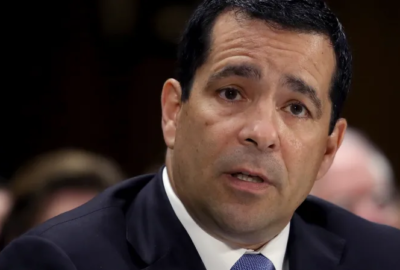NCSC seeks to expand counterintelligence outreach
A new national strategy warns that counterintelligence pros have to work more closely with other agencies and the private sector to address threats.
Amid an “unprecedented” expansion of foreign intelligence risks, U.S. officials are likewise scaling their outreach across government and the private sector on counterintelligence concerns and insider threats.
The National Counterintelligence and Security Center has been focused on building up its public outreach and engagement, especially to private industry in critical technology areas. NCSC Director Michael Casey pointed to the importance of outreach and engagement in the recently issued national counterintelligence strategy.
“If it was just people trying to steal government secrets, we could write a classified strategy, and no one would have to know about it,” Casey said during an Oct. 10 appearance at the Center for Strategic and International Studies. “But because we have to do so much work with the private sector, we have to make it public to explain how we’re thinking about this, how we’re going about it, and provide direction.”
The new counterintelligence strategy, released in August, states the United States “is facing threats from foreign intelligence entities that are unprecedented in their breadth, volume, sophistication, and impact.”
“Adversaries are pursuing not only classified information but also vast troves of unclassified material that can support their political, economic, research and development (R&D), military, and influence goals, and their attempts to target U.S. persons, supply chains, and critical infrastructure,” the strategy states.
Many of the strategy’s goals, ranging from countering cyber threats to reducing supply chain risks, include an element of outreach and engagement.
Casey said the NCSC is increasingly organizing its outreach around public bulletins. In July, the center issued a joint bulletin aimed at protecting U.S. emerging technology startups from foreign investment threats.
But acknowledging the relatively small size of the center, Casey also said the NSCS is focused on coordinating its outreach efforts across federal agencies.
“We try to do a lot of coordination across the rest of the intelligence community and the United States government to make sure that we’re all having the same message and are each hitting our own niche audiences effectively,” Casey said during an Oct. 10 event hosted by the Center for Strategic and International Studies.
“Our focus in the short term is really about how do we improve our coordination across the government,” he added.
Focus on insider threats, OpSec
Meanwhile, the NCSC’s National Insider Threat Task Force is also aiming to strengthen its partnerships across the government and the private sector. James Blasingame, assistant director of the enterprise threat mitigation directorate at ODNI, said the task force has a new team focused exclusively on outreach and engagement.
For more than a decade, agencies have been required under a White House directive to establish insider threat programs to address risks ranging from sensitive data theft to violent workplace incidents.
But as with many unfunded mandates, agencies have had varying degrees of success in establishing effective insider threat programs.
But Blasingame said the task force’s new outreach team is meant to help support agencies and other entities more proactively.
“Our goal is never punitive. It’s encouragement and empowerment,” Blasingame said during an Oct. 15 webinar hosted by the Intelligence and National Security Alliance. “Because we want these programs to be out there, even if they are in an early development or redevelopment phase. It’s in our collective best interest to be as supportive as possible.”
Catherine Camilletti, deputy assistant director of the enterprise threat-mitigation directorate at NSCS, said a major priority this year is to “rejuvenate the task force with dedicated resources for insider threat.” She added that the NSCS is also looking to bolster a lesser-known working group on “operational security.”
“We want to advance and mature those missions, both in OpSec and insider threat,” Camilletti said.
While traditionally the NCSC’s insider threat activities have focused on the federal government, Camilletti said officials are increasingly helping private companies address security and counterintelligence risks.
“I think more and more we’re getting more engagement from the private sector, or at the very least, private sector is reaching out a little more,” she said. “I think there’s this acknowledgment that there are [counterintelligence] concerns that they have for their organization and wanting advice and guidance on, what can I do to protect ourselves and our assets?”
Copyright © 2025 Federal News Network. All rights reserved. This website is not intended for users located within the European Economic Area.
Follow @jdoubledayWFED






